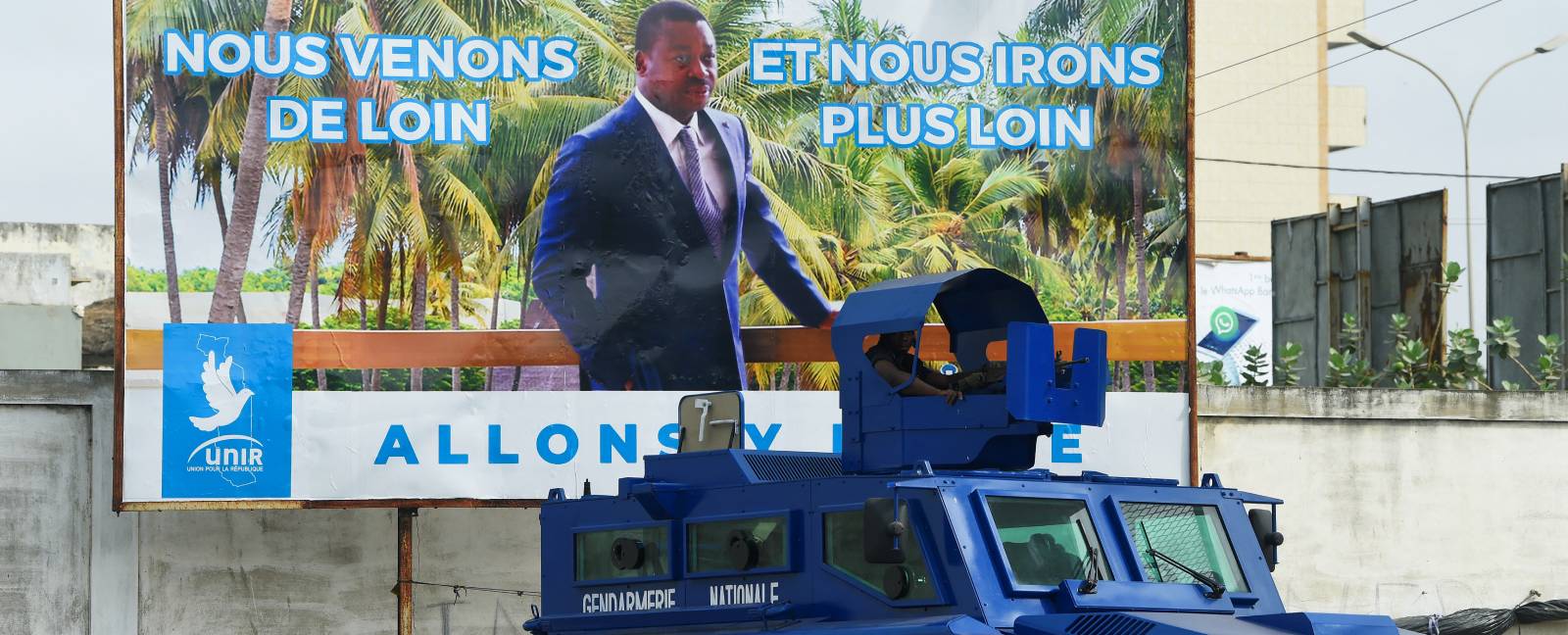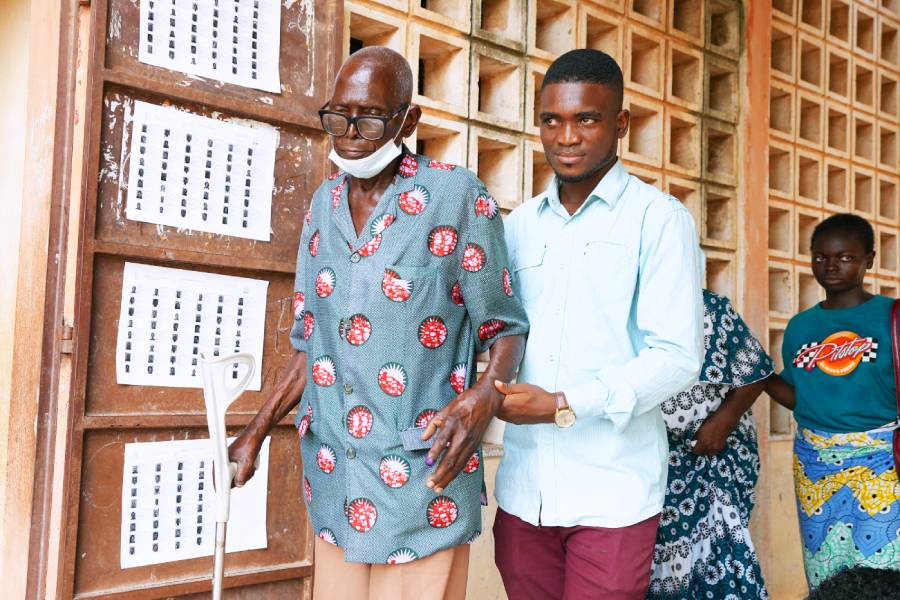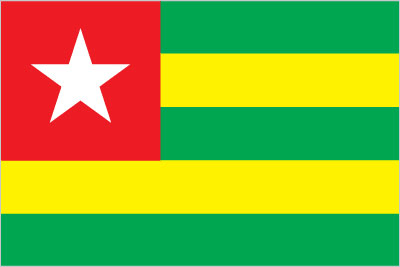Next: Gabon (April 12) »
Senatorial Elections
February 15
For all practical purposes, Togo’s 2025 presidential elections were held in March 2024 when lawmakers in the National Assembly, dominated by the ruling Union pour la République (UNIR) party, voted 87-0 to adopt a constitutional change that eliminates citizens’ right to vote directly for the country’s leader.
The result has been to create an uncontested path for President Faure Gnassingbé to extend his 20-year hold on power—and perpetuate the 58-year family dynasty over this coastal West African country of 9.3 million people.
For all practical purposes, Togo’s 2025 presidential elections were held in March 2024 when lawmakers eliminated citizens’ right to vote directly for the country’s leader.
The revised constitution establishes a new powerful executive position of President of the Council of Ministers (PCM). Elected by the National Assembly, the role will function as a prime minister with full decision-making and civil and military authority for the government. The PCM will come from the party with the most seats in the National Assembly. One-sided legislative elections hurriedly held the month after the constitutional revision gave the UNIR 108 of the 113 National Assembly seats, setting up Gnassingbé to be the first PCM.
The February 2025 elections will be for senatorial positions that create a new upper chamber to Togo’s legislature. Two-thirds of these seats will be elected by local authority representatives and one-third will be appointed directly by the PCM.
The PCM position will have a 6-year term—compared to the 5 years of the current presidency—and is renewable indefinitely. This is significant in that the adoption of a two-term presidential limit has been a focal point of political debate in Togo for years in the effort by the opposition to establish a finite duration to the Gnassingbé dynasty. The term limit issue sparked mass protests across the country until the term limit provision was included in the 2019 Constitution.

A police Armored Personnel Carrier is parked in front of a campaign billboard for President Faure Gnassingbe, candidate of the ruling Union for the Republic (UNIR) party. (Photo: AFP/Pius Utomi Ekpei)
The removal of citizens’ rights to universal suffrage (and the term limits requirement), paradoxically, was not taken through a popular referendum but rather by the March 2024 legislative action by the ruling party. The text of the changes had not even been made public prior to the vote.
Efforts by the opposition to mobilize protests against the UNIR’s constitutional chicanery were blocked by the government. Even the Catholic Church, which plays a vital role in Togolese society, was prevented from observing the April 2024 National Assembly elections.
The UNIR was able to push through these changes due to its near monopoly of the National Assembly as a result of widespread irregularities in previous elections that had led to an opposition boycott. This controversial vote tallying included the 2020 presidential election, in which the opposition is widely believed to have gained a plurality of votes. In 2015, the opposition received more than 40 percent of the official vote.
Political rallies have been banned in Togo since 2022.
The UNIR aims to use this bureaucratic sleight-of-hand to institutionalize its political dominance without an electoral mandate. It also intends to insulate Gnassingbé from further challenges to his serial evasion of term limits, providing a mechanism for him to remain in power for life.
To further remove popular participation from the political process, political rallies have been banned in Togo since 2022.
The two largest opposition parties have indicated that they will boycott the senatorial elections. The l’Alliance nationale pour le changement (ANC), a leading opposition party, has announced it will not participate, calling the elections a “masquerade” and criticizing the previous legislative and regional elections for being marred by fraud and irregularities. This sentiment was echoed by the opposition coalition, Dynamique pour la Majorité du Peuple (DMP), which described the senatorial elections as part of an ongoing “constitutional coup d’état.”
Togo’s police and army are seen as closely aligned with the ruling UNIR party. The army was instrumental in ensuring that Faure Gnassignbé succeeded his father, Gnassingbé Eyadéma, when he died in office in 2005. Security actors’ response to protests in 2005 left hundreds dead. Violent police crackdowns on political demonstrations have continued under Faure Gnassingbé’s rule. A distinctive feature of Togo’s military is that 70 percent of its members are from Gnassingbé’s Kabye ethnic group, even though the tribe makes up only 13 percent of the population.

A man walks an elder to a polling station at the Agbalepedogan public primary school in Lomé. (Photo: AFP/Emile Kouton)
Togo’s entrenched dominant-party model has exacted heavy costs on its population. The poverty rate is 45 percent and real per capita incomes are less than $900 per year, leaving Togo as one of the poorest countries in the region. With government debt of 68 percent of gross domestic product and limited foreign direct investment, employment and development have been lackluster, exacerbating inequality.
The military’s focus on politics has been a distraction from its primary mission of protecting civilians—an issue of growing concern with the deepening militant Islamist insurgency in Burkina Faso that is increasingly spilling over the border and threatening to trigger wider instability in northern Togo.
The 2025 “elections” are thus the culmination of a years-long strategy to unwind Togo’s fledgling democratic institutions. In the process, the UNIR is also removing the legal means to exercise basic rights of expression, assembly, and suffrage. While this may seem like a political victory for the UNIR, these actions are likely setting the country on a path toward greater instability.
Hany Wahila is a Research Assistant with the Africa Center for Strategic Studies.
Next
Gabon (April 12) »


 Togo: An Election without Voting Aimed at Perpetuating Gnassingbé Dynasty
Togo: An Election without Voting Aimed at Perpetuating Gnassingbé Dynasty